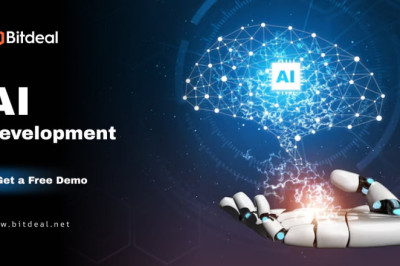views
The Role of AI Interview Software in Live Coding Interviews
As the technology environment changes, so do the approaches for employing software developers. One of the most notable changes is the addition of AI interview software to the live coding interview process. This is changing the way applicants are evaluated, focusing not just on technical abilities but also on the ability to successfully use AI technologies.
The Evolution of Coding Interviews
Traditionally, coding interviews centered on problem-solving and computational problems. Candidates were frequently asked to create code on a whiteboard or in a real-time collaborative editor, proving their ability to think and code concurrently. However, as AI advances, notably in code completion tools such as GitHub Copilot and GPT-4, the dynamics of these interviews shift.
Key changes:
Focus Shift: The emphasis is shifting from just writing code to understanding what code to write and how to improve AI-generated results. Candidates are now required to direct AI tools and critically evaluate their suggestions.
Soft Skills Integration: Effective communication and problem-solving abilities are becoming increasingly vital. Interviewers are seeking for applicants who can communicate their thoughts and work well with AI systems.
Benefits of AI in Live Coding Interviews
Incorporating AI into live coding interviews has various benefits:
1. Realistic Problem Solving: Allowing applicants to utilize AI tools during interviews resembles a real-world coding environment in which developers frequently employ many resources to solve problems.
2. Enhanced Evaluation Metrics: Interviewers may evaluate not just the final answer, but also how applicants engage with AI technologies, revealing insights into their adaptability and resourcefulness.
3. Effectiveness and Flexibility: AI can speed up the interview process by automating certain portions, enabling interviewers to concentrate on assessing soft skills and critical thinking rather than merely technical prowess.
Challenges and Considerations
Despite the advantages, there are obstacles to employing AI in interviews:
Evaluation Accuracy: Interviewers who depend extensively on AI technologies may struggle to correctly assess a candidate's genuine talents. This might lead to incorrect assumptions about a candidate's competence.
Ethical Concerns: The possibility that applicants would exploit AI during interviews calls into doubt their honesty and genuineness. While AI can help with preparation, using it during an interview may be perceived as deceptive.
Future Directions
As AI advances, so will its role in technical interviews. Companies must modify their hiring methods to reflect these developments, with an emphasis on the following:
Critical Thinking: Candidates should be evaluated on their ability to analyze and improve AI-generated code, demonstrating both technical expertise and analytical skills.
Personalized Interview Experiences: Future interviews may use AI to personalize questions to a candidate's background and skills, resulting in a more interesting and relevant experience
Conclusion
The use of AI interview software in live coding interviews represents a significant shift in how software developers are evaluated. While technology allows for more accurate evaluations and better candidate experiences, it also raises problems that must be carefully considered. As firms negotiate this new terrain, integrating the benefits of AI with ethical recruiting practices will be critical to effective talent acquisition in the technology industry.




















Comments
0 comment